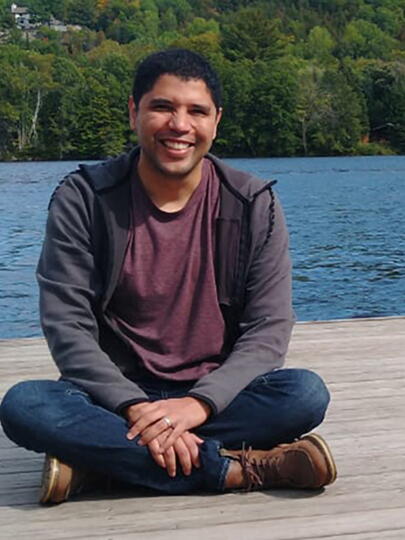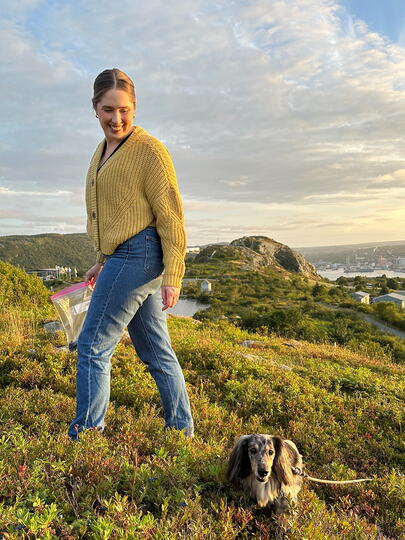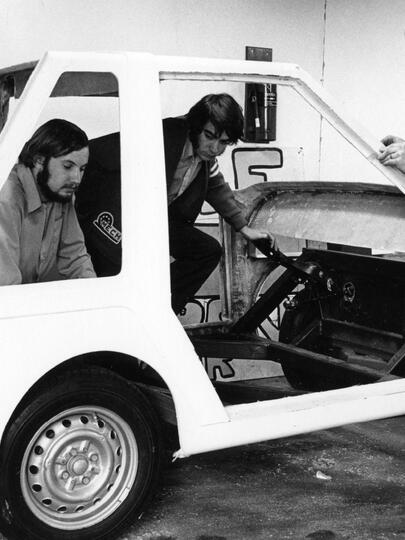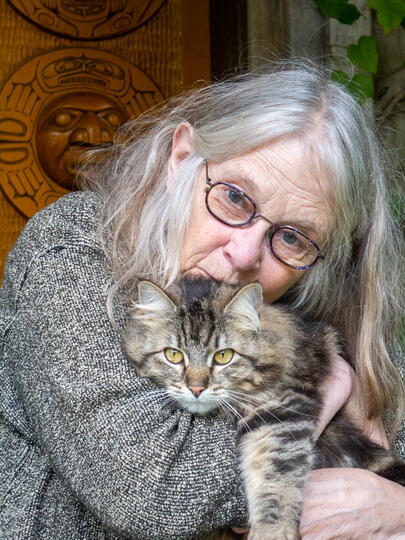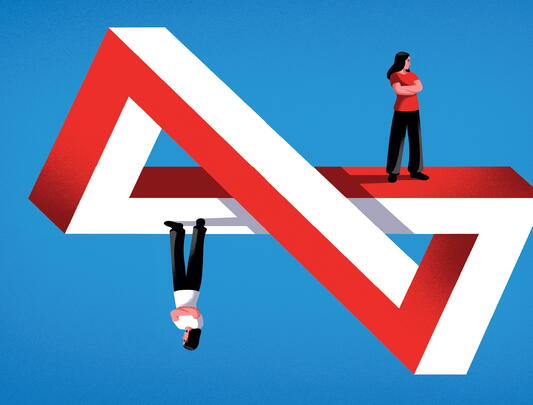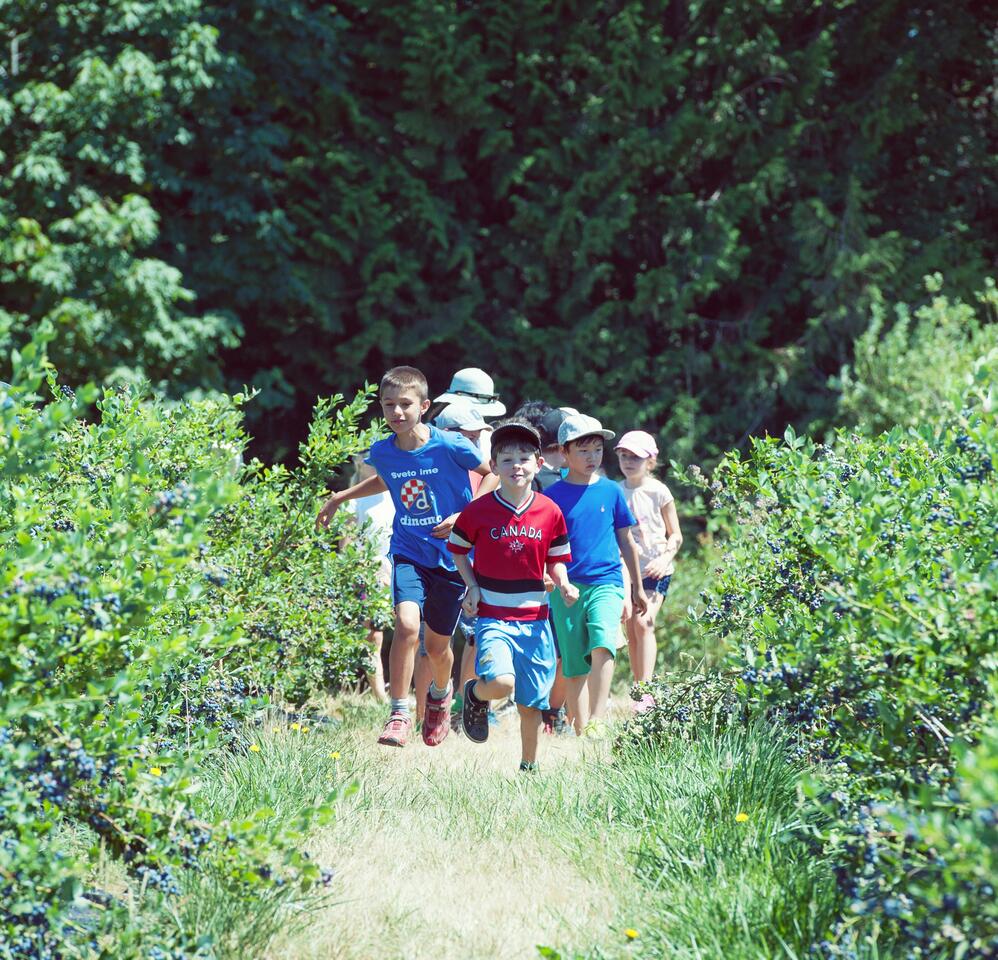
Why it might be time for a treasure hunt
New research reveals the benefits of unbounded play for children.
Photo by Martin Dee / UBC Brand & Marketing
For many kids, summer shimmers with a certain romantic gleam. The long summer days mean freedom, SPF 40 and a licence to play. Even for those of us past childhood, something about the dog days suggests wandering pirates and buried treasures.
Part of summer’s magic is its lack of structure. The summer months give children time and space to wander: to interact with the world creatively, without as many constraints or pressures as they face throughout the school year. Recent psychological research out of UBC and other universities has uncovered the benefits of unstructured play for childhood development. When children direct their own play in a free environment, they become more confident — physically, socially and emotionally.
Summer is the perfect time to encourage free play and to let children, like treasure hunters, set the rules for their own adventures. If you have kids, one easy way to loosen the boundaries of play is to participate with your children in alumni UBC’s Geocaching Adventure. The event is a part of alumni UBC’s Summer Series of fun activities to keep you and your family enjoying the summer season. Registration is free of charge and open until August 31.
A geocache is a small box hidden at a particular latitude and longitude. It’s sort of like a treasure chest for the 21st century — though instead of gold doubloons, you’re more likely to find something small and utilitarian, like a keychain or a pack of trail mix. With the Geocaching Adventure, you can log every discovery in an online dashboard for the chance to win a prize. Millions of these little treasures are scattered around the world, and there are likely plenty in and around the place you live.
Geocaches are often hidden at locations you have to hike to, like parks, canyons or forests, though they can also be somewhere in the city. Searching for them is an open-ended activity, suitable for anyone who wants to spend some time outdoors. And though geocaching is by no means just for children, it’s an exciting, unstructured activity that can help children feel more independent and more confident as they interact adventurously with the outside world.
Dr. Mariana Brussoni, an associate professor at the Department of Pediatrics and the School of Population and Public Health at UBC’s Faculty of Medicine, focuses her research on unstructured play and its developmental benefits. In particular, Brussoni studies “risky” play — play that includes some kind of risk that may result in physical injury, like climbing a tree or wandering the neighbourhood without supervision. Her research suggests that unstructured, risky play has significant benefits for children’s physical as well as psychological development. “It’s just kind of incredible,” she says, “how important outdoor play is.”
Physically, Brussoni explains, outdoor play helps children learn how to move their bodies in physical space, and how to manage risks like slips or falls. Psychologically, unstructured play develops executive functioning skills: children learn to make goals and to prioritize certain tasks over others to attain those goals.
Brussoni co-authored a UBC study published in 2017, which found that small changes to make playgrounds more natural, less predictable and slightly more challenging can increase children’s activity and decrease depression. Children interacted with adults less often on these playgrounds and were able to manage risks and make rules for themselves. In geocaching, the playground is the outside world itself, and children have some freedom to play with natural objects like sticks or dirt. While unstructured play comes with risks, it opens up a space that children can creatively manipulate and adapt to.
Brussoni suggests that the adult’s role in play should be to “scaffold risk,” but not to create a strict structure that eliminates risk completely. “Our tolerance for children engaging in risk has really gone down,” Brussoni says. “We’re much more protective of kids.” While it is important for adults to consider and to manage potential play hazards, like unsafe equipment, an unwillingness to accept any risk can hinder the creative side of play and its benefits.
Unstructured outdoor play gives children a chance to make their own rules and to take part in managing risks themselves. The research suggests that play should at least sometimes move outside of strict boundary lines. Geocaching, which encourages parents and children to traverse unpredictable and unknown territory together, lacks structure in a way that is both exciting and productive. Children and adults have to creatively adapt to the outdoors together. It is an opportunity for adventure, unimpeded and free of most boundaries.
Such adventures are particularly important in our current moment, as we begin to emerge from a pandemic that has left many children more sedentary than they were previously. A 2020 UBC study co-authored by Brussoni, as well as a 6-month follow-up study published just this month, found that during the pandemic, children’s movement and outdoor play decreased, while screen time increased.
With vaccination rates increasing around the world, the hope is for this season to be a time of excitement and activity. At the same time, some of us may still be hesitant to move out of indoor spaces and into the summer sun. Geocaching offers one way to safely and gradually begin doing just that. The unstructured format of something like a treasure hunt can have significant benefits for children’s mental and physical health. It’s something to keep in mind as the summer months begin to remind us again of our inner adventurers, explorers and orienteers.
Need even more encouragement to get outside and play? Hear from UBC alumni who have embraced geocaching and exploration by listening to our Joy in the Summer podcast, episode 3 entitled “Seeking and Moving”.








